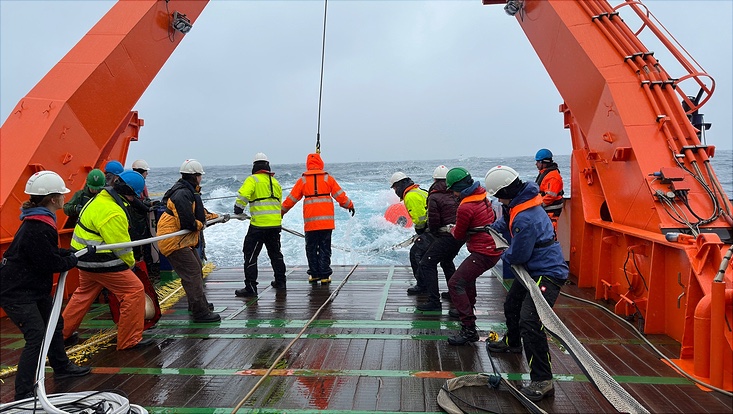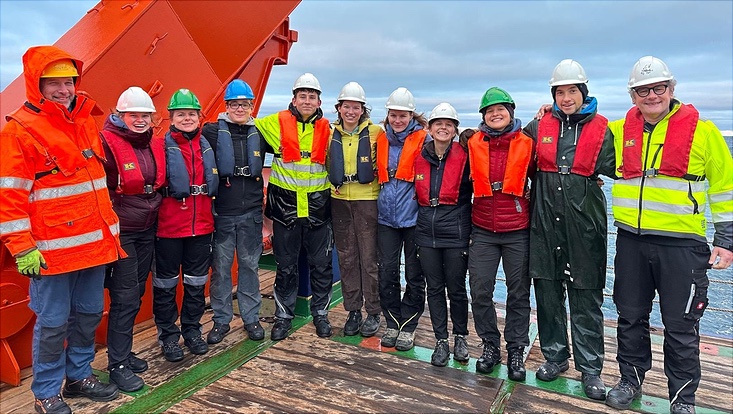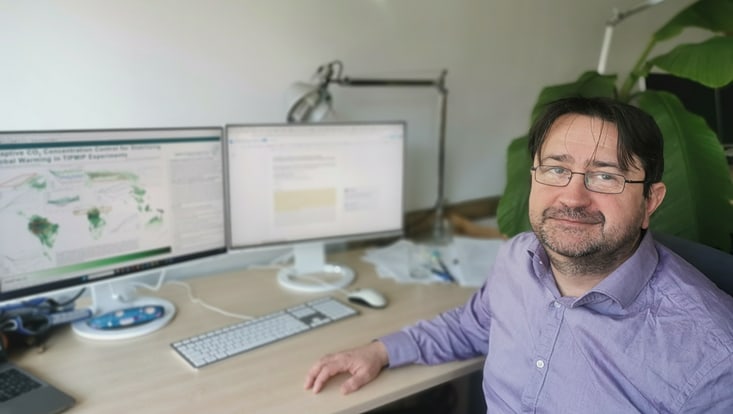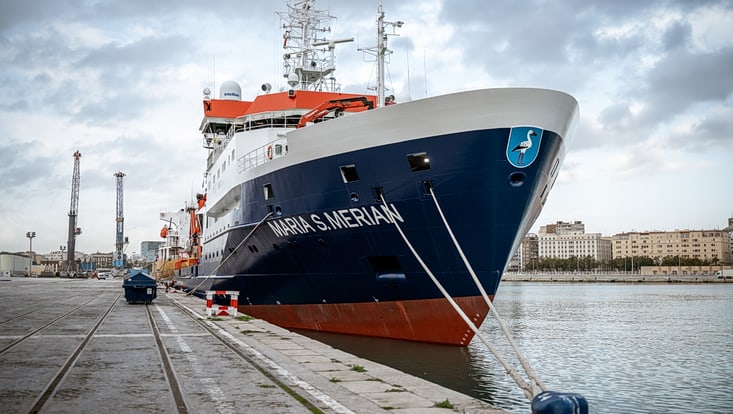Expedition reveals: underwater volcanoes remained active until the recent past
15 July 2024, by Prof. Christian Hübscher

Photo: O. Eisermann
Until recently, ocean margins were the only part of the seafloor that was of interest to Earth system research – or those places where new seafloor is created, i.e., the mid-ocean ridges. In theory, though, very little happens in the oceanic crust except at these ridges. But new findings from the latest METEOR expedition call this view into question.
Since June 10, 2024, marine geophysicists from Universität Hamburg, together with geologists from the GEOMAR Helmholtz Centre for Ocean Research in Kiel, University of Gdansk, and King Abdullah University of Science and Technology in Jeddah (Saudi Arabia) have been on the high seas, surveying the floor of the Irminger Sea – more than 300 kilometers away from the nearest mid-ocean ridge. There, the team is investigating underwater volcanoes between Iceland and Greenland.
The 11-member team from Hamburg’s Institute of Geophysics has already made a number of initial findings indicating that the seafloor, more than 30 million years old, was still covered by extensive lava flows long after it was first created. And the biggest surprise: magmatic activity, i.e., underwater eruptions, must have continued into the most recent geological period.
In addition, the researchers found evidence suggesting that the powerful ocean currents flowing from the Arctic to the western North Atlantic began several million years earlier than previously assumed. Consequently, the expedition has yielded valuable new insights into the geological and oceanographic history of the North Atlantic. On June 18, it will draw to a close at Terceira in the Azores.

More information
The University of Hamburg is the operator of three German research vessels in use around the world. The SONNE and the METEOR are owned by the Federal Republic of Germany, represented by the Federal Ministry of Education and Research. The MARIA S. MERIAN belongs to the state of Mecklenburg-Vorpommern, represented by the Ministry of Science, Culture, Federal and European Affairs. The German Research Fleet Coordination Centre, which is based at the university, is responsible for the operational management of the ships and for the scientific, technical, logistical and financial organization of all expeditions.


